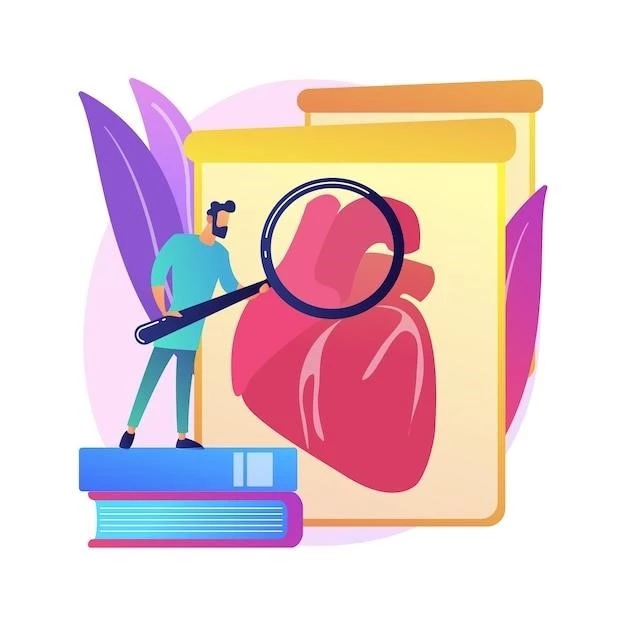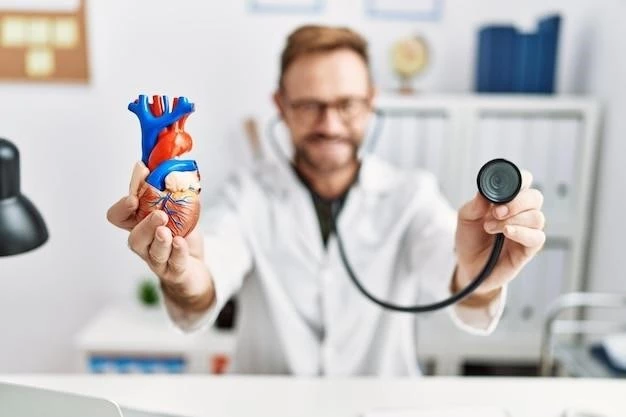Understanding Cardiac Diverticulum
Causes of Cardiac Diverticulum⁚ Understanding the origins of cardiac diverticulum is crucial for proper management. Stay informed about the various factors that can lead to the development of this condition.
Causes of Cardiac Diverticulum
Cardiac diverticulum can be caused by genetic factors, resulting in abnormal heart development. Other potential causes include infections during pregnancy, certain medications, or exposure to toxins. Understanding these causes can help in prevention and early intervention.
- Genetic factors leading to abnormal heart development
- Infections during pregnancy affecting cardiac growth
- Certain medications or toxins impacting heart formation
Symptoms and Diagnosis of Cardiac Diverticulum
Recognizing the symptoms of cardiac diverticulum is crucial for timely diagnosis and intervention. Symptoms may include chest pain, palpitations, shortness of breath, and fatigue. Diagnosis typically involves imaging tests like echocardiograms and MRIs. Seeking medical attention upon noticing these symptoms is essential for proper evaluation and management.
- Common symptoms⁚ chest pain, palpitations, shortness of breath
- Diagnostic tests⁚ echocardiograms, MRIs
- Early medical evaluation is key for effective management
Treatment Options for Cardiac Diverticulum
When it comes to treating cardiac diverticulum, the approach may vary based on the individual’s condition and symptoms. Treatment options can include medications to manage heart function and surgical interventions to repair the anomaly. It’s essential to consult with a cardiac specialist to discuss the most suitable treatment plan tailored to your specific needs.
- Medications to regulate heart function
- Surgical procedures for repairing cardiac diverticulum
- Personalized treatment plan based on individual evaluation
- Consultation with a cardiac specialist for guidance

Management of Cardiac Diverticulum in Adults
For adults with cardiac diverticulum, prioritizing heart health through lifestyle modifications is vital. Regular exercise, a heart-healthy diet low in sodium and saturated fats, and stress management techniques can support heart function. Follow-up appointments with a cardiologist for monitoring and medication adjustments, if necessary, are essential components of long-term management.
- Emphasize regular physical activity for heart health
- Adopt a heart-healthy diet to support cardiovascular function
- Practice stress-reducing techniques for overall well-being
- Schedule follow-up appointments with a cardiologist for ongoing care
Surgical Interventions for Cardiac Diverticulum
When surgical intervention is necessary for cardiac diverticulum, there are different procedures that a cardiac surgeon may consider based on the specific case. Surgical options can include diverticulectomy to remove the diverticulum, patch repair, or even heart valve replacement if needed. It is crucial to have a detailed discussion with the healthcare team to understand the procedure, post-operative care, and expected outcomes.
- Diverse surgical procedures tailored to individual cases
- Possible options⁚ diverticulectomy, patch repair, valve replacement
- Thorough consultation with the healthcare team for informed decision-making
- Post-operative care instructions for optimal recovery
Prognosis and Complications of Cardiac Diverticulum
Understanding the prognosis and potential complications of cardiac diverticulum is crucial for informed decision-making and long-term care. Prognosis varies based on individual factors and the extent of heart involvement. Complications can include heart failure, arrhythmias, and increased risk of infections. Regular follow-up appointments with a cardiologist can help monitor progress, adjust treatment as needed, and address any emerging issues promptly.
- Prognosis tailored to the individual’s case and response to treatment
- Possible complications⁚ heart failure, arrhythmias, infection risk
- Importance of regular follow-up appointments with a cardiologist
- Early detection and intervention key in managing complications
Research Advances in Cardiac Diverticulum
Continuous research efforts are essential for advancing the understanding and treatment of cardiac diverticulum. New studies aim to explore the genetic factors contributing to its development, innovative diagnostic techniques, and novel surgical approaches. Staying informed about the latest research findings can provide insights into emerging treatments and potential breakthroughs in managing this condition. Consider participating in clinical trials to contribute to the advancement of medical knowledge and receive cutting-edge care.
- Exploration of genetic influences on diverticulum development
- Innovative diagnostic methods enhancing early detection
- Research on novel surgical strategies for improved outcomes
- Stay updated on research findings for informed decision-making
- Opportunities to participate in clinical trials for access to groundbreaking treatments
Lifestyle Recommendations for Patients with Cardiac Diverticulum
Adopting a heart-healthy lifestyle is crucial for managing cardiac diverticulum. Follow these lifestyle recommendations to support heart health and overall well-being⁚ maintain a balanced diet rich in fruits, vegetables, lean proteins, and whole grains; engage in regular physical activity as recommended by your healthcare provider; manage stress through relaxation techniques such as meditation or yoga; prioritize quality sleep to aid in heart function and recovery. Making these positive lifestyle changes can help in improving your heart health and quality of life.
- Choose a balanced diet with essential nutrients for heart health
- Partake in regular physical activity suitable for your condition
- Incorporate stress-reducing activities into your daily routine
- Prioritize restful sleep for optimal heart function and recovery
- Consult with a healthcare professional for personalized lifestyle recommendations
